Роберт Бюттнер - Orphan's Journey
Здесь есть возможность читать онлайн «Роберт Бюттнер - Orphan's Journey» весь текст электронной книги совершенно бесплатно (целиком полную версию без сокращений). В некоторых случаях можно слушать аудио, скачать через торрент в формате fb2 и присутствует краткое содержание. Жанр: Боевая фантастика, на английском языке. Описание произведения, (предисловие) а так же отзывы посетителей доступны на портале библиотеки ЛибКат.
- Название:Orphan's Journey
- Автор:
- Жанр:
- Год:неизвестен
- ISBN:нет данных
- Рейтинг книги:3 / 5. Голосов: 1
-
Избранное:Добавить в избранное
- Отзывы:
-
Ваша оценка:
- 60
- 1
- 2
- 3
- 4
- 5
Orphan's Journey: краткое содержание, описание и аннотация
Предлагаем к чтению аннотацию, описание, краткое содержание или предисловие (зависит от того, что написал сам автор книги «Orphan's Journey»). Если вы не нашли необходимую информацию о книге — напишите в комментариях, мы постараемся отыскать её.
Orphan's Journey — читать онлайн бесплатно полную книгу (весь текст) целиком
Ниже представлен текст книги, разбитый по страницам. Система сохранения места последней прочитанной страницы, позволяет с удобством читать онлайн бесплатно книгу «Orphan's Journey», без необходимости каждый раз заново искать на чём Вы остановились. Поставьте закладку, и сможете в любой момент перейти на страницу, на которой закончили чтение.
Интервал:
Закладка:
Robert Buettner
Orphan’s Journey
(Orphanage 3)
For Mary Beth,
For everything,
For ever
Patton, himself, pinned my Purple Heart on my pillow today. I told him our Shermans were coffins. Undergunned, underarmored. The gasoline engine makes them rolling bombs. Still, I took on a German Tiger. My boys burned alive. I cried, and I thought he’d slap me. But he patted my shoulder and whispered, “Son, the Army’s a big family. But command is an orphan’s journey.” Then that SOB cried with me.
— Tank Commander’s letter from France, December 1944
ONE
TEN YARDS SEAWARD from where I stand on the beach, the new-risen moons backlight our assault boats, outbound toward six fathoms. Beyond six fathoms lies hell.
Wind bleeds oily smoke back over me from lanterns roped to a thousand gunwales. Fifty soldiers’ churning paddles whisker each boat’s flanks. The boats crawl up wave crests, then dive down wave troughs, like pitching centipedes. For miles to my left and right, the lantern line winds like a smoldering viper.
I’m Jason Wander. Earthling, war orphan, high school dropout, infantryman, field-promoted Major General. And, on this sixth of August, 2056, accidental Commander of the largest amphibious assault since Eisenhower hurled GIs across the English Channel.
New century. New planet. Old fear.
An assault boat’s Platoon Leader stands bent-kneed amid his paddlers, waving his boat’s lantern above his head. He shouts to me, “We gladly die for you!”
I salute him, because I’m too choked to shout back. And shout what? That only fools die gladly? That he’d better sit down before his own troops shoot him for a fool? That someone should shoot me for one?
At my side, my Command Sergeant Major whispers, “They won’t shoot him, Sir.” I blink. Ord has read my mind since he was my Drill Sergeant in Basic.
The Bren may not shoot one another tonight, but the first Bren proverb we translated was “Blood feud is bread.” For centuries, Bren has suffered under the thumb — well, the pseudopod — Slugs are man-sized, armored maggots that have no thumbs — of the Pseudocephalopod Hegemony. Still, every Clan midwife gifts every male baby with a whittled battle axe. Not to overthrow the Slugs. To whack human neighbors who worship the wrong god.
But if the newly unified Clans fail at sunrise, the Slugs will peel humanity off this planet like grape skin. Because we four Earthlings arrived.
Did I say “unified”? Ha. We should’ve segregated every boat. Mixed Clans may brain each other with their paddles before the first Slug shows. The final toast at Clan funerals is “May paradise spare you from allies.”
Packed into twenty square miles of beach dunes, the Second and Third Assault Waves’ cook fires prick the night. Smells of wood smoke and the dung of reptilian cavalry mounts drift to me on the shifting wind, along with Clan songs.
Yet twenty-two miles across the sea, the Slugs sleep.
Actually, no human knows whether Slugs sleep. But I have bet this civilization’s life that tonight the Slugs have left the cross-channel beaches undefended. It seems a smart bet. No boatman in five hundred years has crossed the Sea of Hunters at full moons, and lived.
I chin my helmet optics. Two heartbeats thump before I get a focus. A mile out, faint wakes vee the water. The first kraken are rising, like trout sensing skittering water bugs.
Sea monsters mightier than antique locomotives are about to splinter those first boats, like fists pounding straw. But troops that survive the crossing should surprise the Slugs. Surprised or not, the Slugs will still be the race that slaughtered sixty million Earthlings, as indifferently as mouthwash drowning germs.
Waves explode against boat prows. Windblown brine spits through my open helmet visor, needling my cheeks. My casualty bookie says that, even before the moons set, four hundred boats and crews will founder. Because I ordered them out there. The brine hides my tears.
Is my plan brilliant? Hannibal crossing the Alps? Mac-Arthur landing at Inchon? I swallow. “What if I blundered, Sergeant Major?”
Ord nods back his helmet optics, then peers through binoculars older than he is. “Sir, Churchill said that war is mostly a catalogue of blunders.”
Ord told me exactly the same thing as we lay in the snow of Tibet, three years ago. If I’d listened, this ratscrew could’ve been avoided.
TWO
“SLIDERS, SIR!” Ord gripped my elbow and whispered over Himalayan wind as thin and sharp as ice picks. We lay together, hidden belly-down behind a storm-scoured boulder, as he pointed. A half mile below us, six Chinese hovertanks slid on their air cushions out of the tree line that bounded the Tibetan valley.
I shuddered, squeezed my suit temp up a degree against the gusts, then boosted my helmet optics’ magnification. Each Chinese hovertank’s commander swayed waist-deep in his open turret hatch. Chin high, each Slider’s commander was goggled and masked against snow fog billowing from each hovertank’s skirts as it slid across the snow.
I said, “They’re unbuttoned!”
Ord snorted. “In thirty seconds they’ll regret that.”
Engines droning like distant bumblebees, the hovertanks slid down the narrow valley single file.
I looked ahead of the armored column to where the Free Tibet Forces rebels we were advising lay hidden beneath snow-piled tarps. In fifteen seconds, the hovertanks’ light-armored flanks would come in range of our rebels’ old-but-deadly Rocket Propelled Grenades. When the ambush sprung, the infantry squad inside each hovertank would charge out, and our little Tibetan rebels would hose their Chinese tormentors with small-arms fire. Just the way we taught them.
Ord thumbed his old binoculars’ focus, then swore. “They’re riding high!”
I jerked my optics back to the hovertank column. The Chinese Leopard is just a bootleg-copied Lockheed Kodiak with a cheaper, manual cannon. Like the Lockheed, and every other Nano’Puter-stabilized hovertank, a Leopard slides over snow, swamp, or prairie faster than old, tracked tanks ever could. Like the Lockheed, the Leopard’s ass-end droops when its infantry squad is aboard. These sliders didn’t droop.
My heart skipped. “Then where are their—?”
Ord was way ahead of me, as ever. He pointed behind our rebel ambush party. Scurrying gray against the snow, dismounted Chinese infantry popped, one after another, over the knife-edged ridge behind the unsuspecting rebels.
On my advice, the rebel commander, Tensing, hadn’t covered his troops’ rear. Why waste combat power? The ridge’s backside dropped away in half-mile cliffs that I assumed were impassable. Like the Romans assumed the Alps were impassable to Hannibal. Like North Korea assumed the Inchon mud flats were impassable to Mac-Arthur. I shook my head. “With an adviser like me, Tibet doesn’t need enemies.”
Somehow, the Chinese had seen our rebels preparing our ambush, and had dropped off the Chinese infantry behind our rebels to ambush the ambush.
Officially, it wasn’t “our” ambush. Since mankind won the Slug War, global unity hadn’t crumbled back to “Cold War,” but U.S.-China relations were frosty. Within the borders of what China laughingly called the Tibet Autonomous Region, Ord and I supplied clandestine advice and back-channel equipment to Tibetan rebels. But combat participation was forbidden. Officially.
The hovertanks stopped short of the kill zone.
I chinned my radio to our rebels’ frequency. “Mouse, this is Ox—”
Nothing but static.
Hovertank turrets swiveled toward the hidden rebels.
“How did the Chinese know—” I asked.
Ord craned his neck at the blue sky. “Overhead surveillance. Must be.”
Читать дальшеИнтервал:
Закладка:
Похожие книги на «Orphan's Journey»
Представляем Вашему вниманию похожие книги на «Orphan's Journey» списком для выбора. Мы отобрали схожую по названию и смыслу литературу в надежде предоставить читателям больше вариантов отыскать новые, интересные, ещё непрочитанные произведения.
Обсуждение, отзывы о книге «Orphan's Journey» и просто собственные мнения читателей. Оставьте ваши комментарии, напишите, что Вы думаете о произведении, его смысле или главных героях. Укажите что конкретно понравилось, а что нет, и почему Вы так считаете.

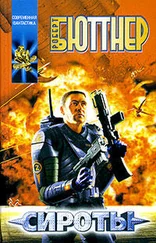

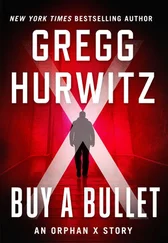
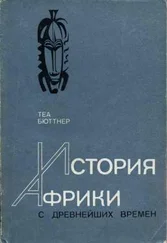

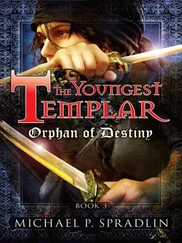
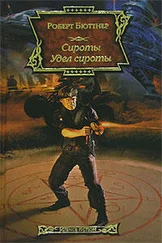
![Дэн Бюттнер - Где живет счастье [Правила жизни самых счастливых людей планеты] [litres]](/books/395574/den-byuttner-gde-zhivet-schaste-pravila-zhizni-samyh-thumb.webp)


